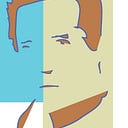OK, I think it would have been a lot more accurate if I had made my epistemic observations about the philosophy underlying Chinese Medicine specifically in regards to its contemporary practice and culture, in the United States. Or, since it’s been 19 years since I’ve been in the field, it would be even more apt to restrict my generalizations to my own experience back then. With regards to what I call the structuralist/modernist aspects, I agree it makes sense to think of those as having come on board in the 20th century with the Communist Party’s attempt to systematize “Traditional Chinese Medicine.” With regard to what I called the postmodern aspects, my impression remains that a lot of that is inherent in some form in ancient Taoist thought, but yes, we experience it through the filter of the American 1960s/70s counterculture, etc. In my acupuncture education, at Seattle’s Bastyr University in the 90s, all of this was kind of jumbled together, and there was also a strong dose of humanistic psychology, because, since this was at an all around university of natural medicine, we had a strong counseling component to our education. In comparison to the way our actual Chinese teachers approached things, the American style seemed to focus a lot more on the patients’ interiorities, which I would claim adds to the metamodern aspect.
With regard to the general question of whether there is a non-periodized, “ahistorical” aspect to the epistemes: I agree that if you are spending a lot of time identifying cultural artifacts as, say “postmodern” that occurred prior to the years we generally name postmodern, it dilutes the model of the progression of the epistemes. And I agree that an important part of a thing’s “epistemic identity” is its relationship to other things simultaneously present in the same historical period. However, I still stand by the usefulness of thinking of epistemes as BOTH historical periods and also independent sensibilities. I don’t see an episteme as simply the sum total of everything going on culturally during a period — rather, I see it as a particular sensibility / structure of feeling / aesthetic that happens to dominate that period. Or even only dominate the leading edge of that period. So in any given epistemic period, you’d see PLENTY of cultural artifacts more reflective of earlier epistemic sensibilities. And, in a few instances, you will see cultural artifacts that are AHEAD of their time, reflecting an epistemic sensibility that hasn’t really emerged, and certainly not flourished, yet in general. I would tend to add the prefix “proto” when talking about those cases. So, for example, the music of Jonathan Richman, from the 70s, 80s and 90s, is proto-metamodern. (Since metamodernism takes off largely a little before 2000.)
With all that having been said, I do agree with you that it doesn’t come out of the mouth right to talk about ancient Chinese medical concepts as “modernist” or “postmodern.”
